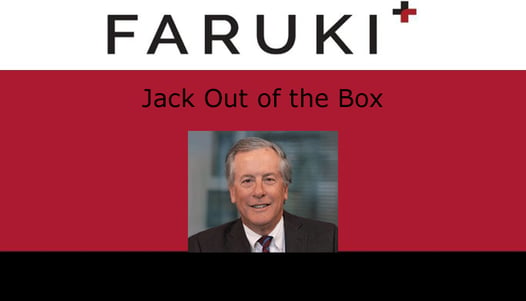- November 12, 2024
- Jack Greiner
- Jack Out of the Box
 I appeared on "Crime Fix" last week on the Law & Crime network. The host, Angenette Levy and I talked about Combs' then pending request for a gag order that would require all witnesses and their attorneys – even "potential" witnesses – from speaking out about the case. I predicted the court would shoot down the request. And last Friday, the Court did just that. I also predicted the Bengals would beat the Ravens, so I batted .500 on my predictions.
I appeared on "Crime Fix" last week on the Law & Crime network. The host, Angenette Levy and I talked about Combs' then pending request for a gag order that would require all witnesses and their attorneys – even "potential" witnesses – from speaking out about the case. I predicted the court would shoot down the request. And last Friday, the Court did just that. I also predicted the Bengals would beat the Ravens, so I batted .500 on my predictions.
In its order denying the requested gag order, the Court laid out the reasons I expected to see. First, the request was too broad. As the Court noted, the applicable local rule allows a court to impose "special orders" regarding extra judicial statements, but only as to "parties and witnesses." As the Court noted, the rule does not apply to alleged victims and their lawyers. The request to gag potential witnesses, if granted, would have muted Combs' victims. That, in itself, was problematic. Absent extraordinary circumstances, a sexual assault victim needs to be free to seek justice. As the court noted, "[n]ot all alleged victims will be participants in this case, and a blanket restriction on their speech will silence individuals who may never have anything to do with the proceedings here."
Beyond the local rule, the Court noted that Combs' request also failed on constitutional grounds. A request for a gag order pits the Sixth Amendment against the First Amendment. The Sixth Amendment protects a criminal defendant's right to a fair trial. It is a critically important part of our judicial system. Our founders recognized that fact, and the Supreme Court, especially under the leadership of Earl Warren, has consistently upheld fair trial protections. Prejudicial pre-trial publicity, enflamed by out of court comments, can endanger a fair trial.
The First Amendment, on the other hand, protects the right to make out of court statements. And that includes critical comments about a criminal defendant like Sean Combs. It is absolutely the case when it comes to comments of victims. If victims can't speak freely about their experience, why do we have a First Amendment.
So, whenever two constitutional rights are at odds, courts must apply a balancing test. And so it is here. To convince a court to impose a gag order, the defendant needs to demonstrate an overriding governmental interest and that the gag order is the least restrictive means to achieve that interest. Combs failed on both counts. While the government's interest in a fair trial is substantial, it does not justify shutting down victims who need to speak out to get justice.
In addition, a gag order is the last resort a court should consider to ensure a fair trial. Ultimately, the question is less about what people are saying and more about whether a defendant can find 12 jurors who either hadn't heard the chatter or are unaffected by it. As the Court noted here, a court needs to consider methods like a searching voire dire (where the lawyers question the jury about their preconceived notions), change of venue and even sequestration before imposing a gag order. Combs essentially asked the Court to ignore those alternatives. And the Court wasn't having it.
Sean Combs deserves a fair trial. But shutting down public discourse is completely unnecessary. Unlike the referees in the Bengals/Ravens game, the Court got this call right.
